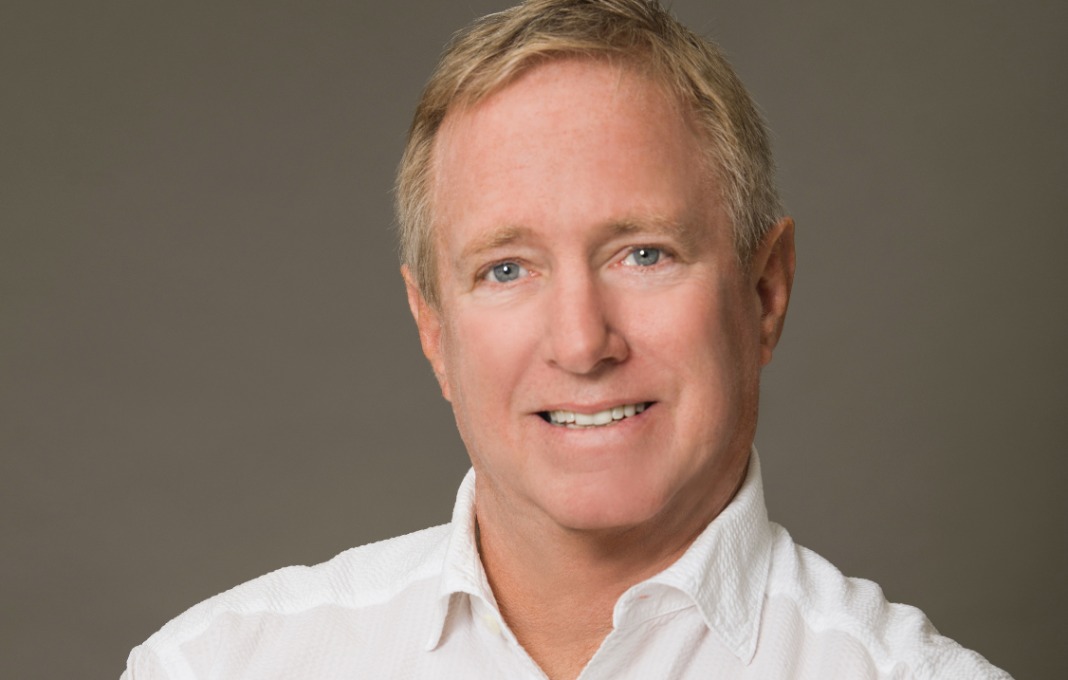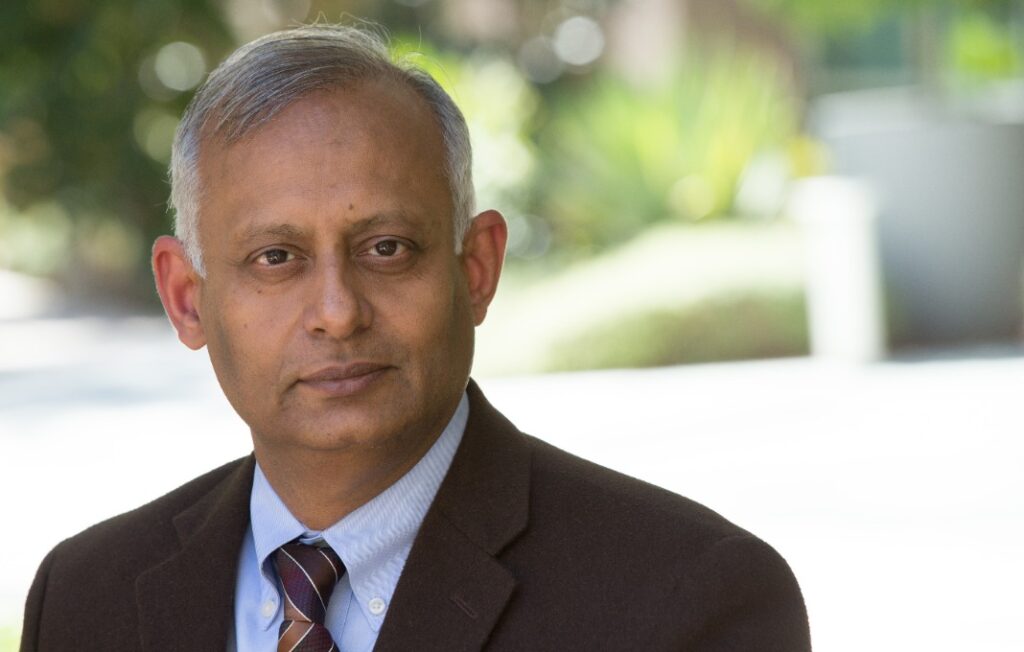Recruiting talent in the technology industry has been a central focus for Lawrence Hutson since the mid 1990s when he personally chose all the developers on the team that created Travelocity. For someone with a background in computer science, it helps to be able to speak the same language, but Hutson relies on more than that when it comes to hiring.
“I’m more excited about people that want to do new things and learn new things,” he said. “I interviewed everybody for Travelocity myself—took them to lunch, ate with them. And if I saw they weren’t hungry for technology, then I would be impatient. Without that motivation factor, without that excitement, I’m not interested.”
That’s a playbook Hutson has pursued in his own career as he gravitated from one disruptive technology in the early days of the internet to another. He is now focused on crypto, currently serving as chief technology officer of HOKK Finance, a multi-chain token.
Hutson spoke with StrategicCIO360 about his pattern of seeking out disruptive businesses, recruiting motivated employees and why the invention of Bitcoin was like the invention of steel.
Looking back at your experience with Travelocity, it seems you’re drawn to disruptive industries. What specific management experience do you see crossing over in your new role?
I’ve been in disruptive technologies since I got my PhD in computer science. Right out of graduate school I started helping Verizon, then GTE, build the first global internet based on TCP/IP. I was a developer on that project. And then from there, I went with some other guys that understood travel and, since I understood the internet, co-founded Travelocity. I hired all the developers that we had on the team, about a $25 million project at the time. We had about $6 million that went into marketing. We spent $6 million alone on hardware—you could probably buy the same thing today for $6,000.
So, I hired all the developers, managed the developers, managed the project, working with the other co-founder to deliver on March 12 of 1996, which we did. We were purchased by Expedia later on for about $280 million. Then I started my own startup in Munich, Germany, which was to improve upon all the things that were happening in the travel industry. Like still today, if you’re a Chinese person, you cannot book an airline reservation in your own name. You have to have an international name or some kind of substitution. There was a whole set of problems that we tried to solve. I was the CEO and the CTO of that company for almost seven and a half years. We took it through seed, then series A and series B and an exit for the company. We improved upon a lot of the infrastructure in the travel industry.
I was pretty much bored with everything after that until I discovered crypto. Having a PhD in cryptography and also economics, I started to study the whole system. And at that point I became all in with crypto. I’ve done nothing but crypto since then. I started off with a crypto venture capital company that invested in all the original, crypto, coin-based finance. We did investments in all of these companies; I was a CTO. And then since then I’ve been the CTO of probably 12 different crypto projects.
Looking across these different industries, what parallels do you see and what management experience are you drawing on from?
For me, it’s understanding people, and the right kind of people that want to be on the project, how to budget those people, how to manage those people on a day-to-day basis. For example, I had almost 120 people working at the company I started in Germany from zero. I hired all of those people. And about 70% of them were engineers. I had a really good understanding of what I think are good qualities to be an engineer and what motivates them and keeps them working on the project: it’s usually the latest disruptive thing that we can possibly do, not the salary and all that kind of stuff.
Do you have a specific plan for recruiting talent and retaining key people?
In the space that we’re in it’s a little bit different than what it was when I did travel because people were in the office. When I did my startup in Germany, we moved to a more remote type of work environment. The operational people, the finance people, all those people were actually in the Munich office. We had an office in the Netherlands for the taxation, for those lawyers. But at that point, I started to begin technically developing remotely. I have a network that I’ve built up over the years where I can get the best Solidity developers. I’ve found in my 33 years of doing this that the absolute best way to grow and develop is through a network. There are some good recruiters, don’t get me wrong. But if I’ve got Joe working on my project, he’s a Solidity engineer, and he’s saying, “Hey, I’ve got a friend that just quit this other project, he’s really good,” those things tend to be up in the 90-something percentile of working out.
To pick up on something you said earlier, what qualities are you looking for or what do you find motivates say an engineer to keep working on a project?
I started off with an economics degree and a master’s in economics. I personally was not a technology person. And then I realized what was going on and I wanted to know more about it. I completely changed universities, changed disciplines, started on my master’s in computer science. So I didn’t come in from a background of—I didn’t play with Atari when I was a kid. But that somehow made it possible for me to be able to understand guys that did play with Atari when they were little boys. Or made their own computers. Because I’m coming at it from a different viewpoint.
I can sit there and let them be arrogant and let them tell me all about technology and kind of overlook that. Because the large percentage of engineers and geeks, they try basically to make you think you don’t know anything. That’s why I drill down all the way to the bottom from not knowing anything about technology, to going all the way through the PhD of learning how to build computers, design, integrate circuits, everything. So, there’s nothing you can fool me about. I just listen to them and then understand and know that either they’re blowing smoke, or they just have that arrogant attitude. It doesn’t affect me. I’m really interested in what they can do and I’m willing to play along with their process. Because you’re not going to fool me. They may know a little bit more than I know in cryptography, but at the end of the day, I could drill down and figure it out.
So you’re looking for that motivation?
It’s like, the invention of crypto, with Bitcoin. There were other projects before that, but that invention is similar to the invention of steel. You think of the architect that wanted to build a building more than three stories high and along comes steel. And they go, “Wow, we could use this, we could do this.” So that kind of excitement. Before we started Travelocity, there were only two ways to buy travel. Number one, you had to call the airline, the hotel directly. Or you went for a travel agent. That’s it. On March 12 of 1996, 18 million potential internet users in the United States could come on to Travelocity and book travel themselves. And they could see it for themselves. So that kind of excitement is what I’m referring to.
To switch gears, looking ahead what are some of the biggest challenges you anticipate in the year to come? And what specific steps are you taking to prepare for them?
It didn’t take a genius, but I predicted, I was telling friends and family a year ago, you’ve got to listen, “They’re printing money like it’s toilet paper.” I told everybody that was willing to listen, friends and family, “You really need to prepare.” Because inflation’s going to drive this. The answer is obviously going to be cryptocurrencies mainly because there will never be anything to replace Bitcoin’s store of value because it’s programmatically scarce. You can’t make any more of it. And everything else in this world besides time is not scarce. If I want to make more gold, I could buy the incredible latest mining equipment and double my operations. The problem is the price of gold doesn’t support it. Gold’s not necessarily scarce. Bitcoin is scarce.
So, to get away from this inflationary, monetary policy that all of the governments are undergoing you’re going to need to do something. And along came this lifeline called Bitcoin. Now we have all these thousands of different coins and thousands of different blockchains. One approach is HOKK, where what they’ve done is taken a token. It’s not a coin, it’s a token. A coin runs a blockchain. A token is a utility upon the blockchain. And they’ve taken this token, which was based on crowdfunding based on growth hacking. That’s what meme coins are. There’s no utility there. It’s just Dojecoin, because Elon Musk liked it, boom it all goes up. But we’re talking the first meme coin—meme coins by definition have a community. Whereas I’m going to come up with a new DeFi protocol. It doesn’t have a community. I’ve got to build that community and I’ve got to get people to use it based on the fact that I’ve got the highest APY, I’ve got the highest returns.
So we’re taking the community that we have, and we’ve introduced a utility to it with DeFi and staking and NFTs and things like that. We’re the first ones that I know of that have gone to that from being a complete meme coin. Now we’ve instituted utility against that. And now we need to grow the community more, to bring more value to that token.
We want to increase the adoption of that and make it easy for people to use. So that’s the thing behind HOKK, that I’m challenged with increasing the rate of adoption and making it understandable too. One of the things I do is try make it if I’m getting in an elevator with you and I’m gonna go 11 stories, by the time we get to the top, you can go, ‘Oh yeah. I understand.’ That’s not easy to do.
There are a lot of specifics, and the technology can be an obstacle for some.
Well, here’s the interesting point. The central bank of all central banks came out with a paper. And just to summarize, it said basically that only educated people know about crypto and how to deal with crypto. But it’s actually the opposite. If you go to Venezuela, they all know how to use Bitcoin, because they can’t use their own currency. Or Zimbabwe. So it’s kind of counterintuitive as to who actually has adopted this. They’ve adopted it because they have to. They don’t have to use Western Union. Even Cuba—I could send Bitcoin to Cuba now. They closed Western Union in Cuba.
To look at another possible risk, can you describe your strategy when it comes to guarding against cybersecurity risks?
What happens with cryptocurrency in its native form is that it puts all the responsibility for risk on the user themselves. So it’s not like you walk down to the bank and you put a $100,000 deposit in Bank of America, and you walk away. And you trust Bank of America. All I’ve got to do is basically have a worm or a virus in my phone that pops up and looks like MetaMask, which is a wallet, and asks me for my passwords. So that’s the real risk. The security behind Bitcoin is done. It just pushes all the responsibility to the user. And as we educate users more and more…for instance, I’ve got a new Apple Mac Air. And I installed MetaMask, and something popped up and it didn’t look right. And I basically have not yet put my wallet on it. I haven’t had time to go figure it out. Maybe it was nothing, but it just kind of didn’t look right. So education is the key.
To look at that a little more closely, do you see that that will be one of your new business challenges, to help individuals increase their own security? Is that going to be necessary for this industry?
I believe it is. By the way, you don’t have to have your own wallet. You can use a centralized exchange. But the problem with that is you’ve got to trust the centralized exchange. And if they get hacked, they get out all the private keys and they can empty your wallet. So it’s kind of this trade off. And I think education is the best thing. If you were an elderly person, there are custodial mechanisms for that, especially, they’re not that far advanced, for institutions, multisig wallets, where it takes more than one signature to move things around. The problem that we as crypto people sometimes don’t realize is that we just expect everybody to know that.
Lastly, we talked about inflation earlier, but how do you see the current economic climate affecting your company’s plan to compete with traditional banking?
There’s no turning back. The market condition is not really good right now. And I’m shocked. I wouldn’t say they’re bad, but Bitcoins are hovering around $40,000, and it was up to 60K. Why aren’t people investing in Bitcoin right now? It’s going to happen. It’s just economics and economics rules because there’s no way to get away from this inflation right now.









